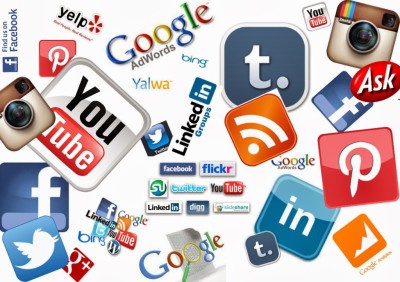
The media has evolved rapidly in the last decade with the innovation of e-platforms. These platforms have simplified communications for everyone. In simple term, ‘media’ implies the main means of mass communication (television, radio, newspaper, and the internet). ‘Journalism’, on the other hand, means the profession of writing for newspaper or magazines or of broadcasting news on radio or television. Internet has changed the face of media, the platforms have evolved from analogue to internet based, but this doesn’t change journalism as a profession. In the traditional world, newspapers, corporations, governments, or other types of leading organisations simply had to give out information, and people would consume it by reading or looking at it. But this seemingly tried-and-true method is transforming as people want to have their voices heard.
Before describing the relationship between social media and journalism, it’s vital to touch on journalism’s purpose and troubles within the media industry. Today, the open access to social media makes many users latch onto the title “journalist”, but journalism as a profession is not merely defined by the access to a Facebook or Twitter account and a large audience.
The media is a platform and it can change from time to time, whereas journalism is a profession that endures through its ethics and traditions.The impact of social media on journalism cannot be overemphasised; it aids the reporting and dissemination of reports, and it has strengthened some of journalism’s major objectives – the quest for truth in information, transparency, and affording a voice to the masses. However, today, everyone wants to be heard; they want to register their voices on socio-political and economic matters in the media, and thus they believe they should contribute their opinion and other content, which has been made easy by this new media. Hence, everyone considers himself or herself a journalist these days.
True, there has been a shift from traditional media, like newspapers and magazines, that now accommodates digital news sources. yet, a journalist can be a social media user, but not all social media users are journalists. Journalists use social media/new media to promote and distribute their editorial content and for personal branding.
As more people turn to Facebook and other social-media platforms as a place to gather and share ideas, many of them are rather falsely assuming the statuses of journalists, but journalism is a profession guided by its own ethics which the majority of these users are apparently unaware of. While new media has made it possible to get information from corners of the world where previously little was heard of, and it gives the ‘voiceless’ a chance to speak, it also democratises information and allows viewers, listeners and readers to participate in creating and sharing information in real time, but all these don’t make them journalists. The media is a platform and it can change from time to time, whereas journalism is a profession that endures through its ethics and traditions.

No comments:
Post a Comment